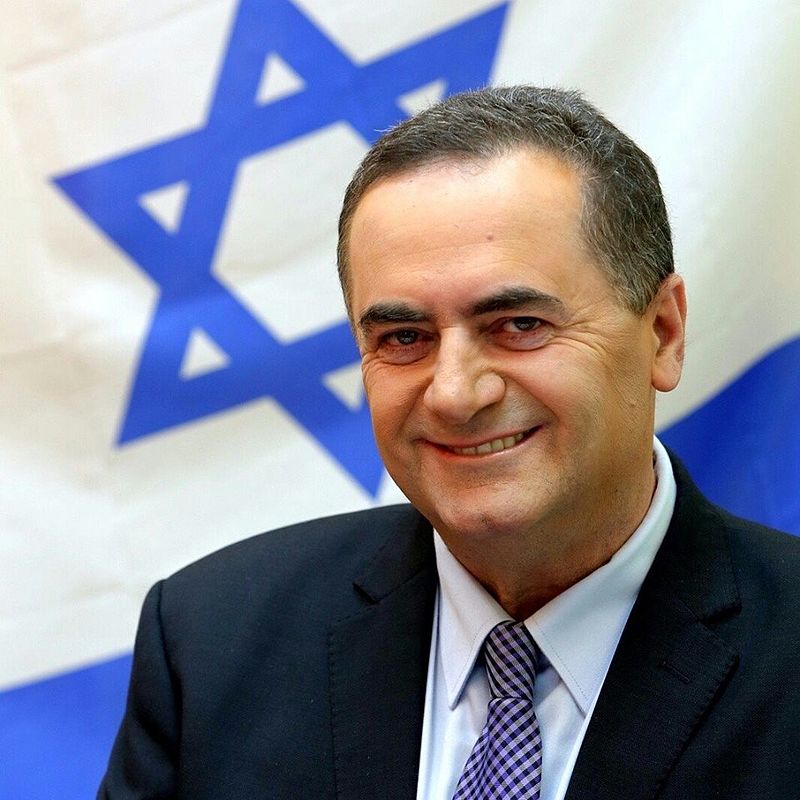Jerusalem: US ends Oslo peace process
By Brian Durrans
When President Trump announced “…it is time to officially recognize Jerusalem as the capital of Israel” and that consequently the US would be moving its embassy there from Tel Aviv. Its assumed significance and rapturous reception by Israel’s friends has prompted comparison with the Balfour Declaration of 1917; but, as with Balfour’s, there is more to Trump’s Declaration, and more to its implications, than initial reactions acknowledged. What does Trump’s statement mean for the legal status of Jerusalem and for the future of the Palestinian struggle for Freedom, Justice and Equality?
THE LEGAL STATUS OF JERUSALEM
The principle that Jerusalem should be accorded special status relative to the rest of Palestine was agreed by the United Nations shortly before the founding of Israel in 1948, but implementing it was thwarted by Israel’s capture of what is now known as West Jerusalem, in 1949, when it was annexed into the Israeli state. During that conflict, Arab (mainly Jordanian) forces took East Jerusalem which was, however, always treated as part of the West Bank, despite its annexation by Jordan, until transferred to the Palestine Liberation Organisation in 1989.In 1960, the Israeli Knesset passed a ‘Basic Law’ declaring the nation’s ‘eternal’ capital to be Jerusalem as a whole, and seven years later, in the Six Day War of 1967, East Jerusalem was seized by Israeli forces along with the rest of the West Bank and Gaza, and is now part of the Occupied Palestinian Territories.[1]
Unlike the rest of the West Bank and Gaza, however, Palestinian East Jerusalem, like Palestinian West Jerusalem before it, was illegally annexed into the Israeli state; and although the international community consistently maintained its position that these actions contravene international law, Israel has played a long game, by creating its own laws designed to ensure a permanent Jewish majority in the City, by a combination of encouraging Jewish-only settlement and making life increasingly difficult for Palestinian Jerusalemites, who have never been accorded Israeli citizenship, only ‘residency rights’ which are frequently withdrawn. In time, despite the near-universal rejection of its occupations and annexations, Israel’s policy-makers have hoped that if its illegal acts could be consolidated as ‘facts on the ground’, then at least one major power, and subsequently others, would eventually recognise such illegality as irreversible and endorse it. That policy appears to be paying off.
WHAT TRUMP SAID
President Trump tries to justify his decision to recognise (undivided) Jerusalem as Israel’s capital in two ways. One is to say that “Israel is a sovereign nation with the right like every other sovereign nation to determine its own capital”; the other is to claim that he is simply recognising reality: “Today, Jerusalem is the seat of the modern Israeli government. It is the home of the Israeli parliament, the Knesset, as well as the Israeli Supreme Court. It is the location of the official residence of the Prime Minister and the President. It is the headquarters of many government ministries.”
For fifty years, UN resolutions have rejected Israel’s claims to sovereignty over the whole of Jerusalem. But does the US now support the long-established Israeli position which even the US has hitherto rejected even while consistently defending its ally diplomatically, and through financial and military aid? Here is what Trump goes on to say: “We are not taking a position of any final status issues, including the specific boundaries of the Israeli sovereignty in Jerusalem, or the recognition of contested borders. Those questions are up to the parties concerned.” On paper, therefore, the US position has not changed after all, a conclusion drawn explicitly by at least one prominent minister in the Israeli cabinet, transport minister Yisrael Katz, a likely Likud prime minister if Netanyahu succumbs to financial scandal in an investigation currently underway. [2] Katz, at any rate, recognises that the US has not gone so far as to accept as legitimate Israel’s illegal annexation of East Jerusalem, which therefore questions the real intention of Trump’s statement. Talking about ‘recognising reality’ means, without explicitly saying so, accepting Israel’s claim to impunity from laws governing all other sovereign nations, as in: “[since 1948,] Israel has made its capital in the city of Jerusalem — the capital the Jewish people established in ancient times”. The giveaway is saying one thing and meaning another. The whole purpose of Trump’s statement is to legitimize the illegality of Israel’s occupation and annexation of Palestinian territory. But to judge by the reaction of Palestinians themselves, and the overwhelming vote in the General Assembly on 21 December 2017 against the US decision to recognise Jerusalem as Israel’s capital, the effect until now has been far from what he intended.
The racist arrogance of Israel’s claim, and of this latest evidence of US complicity in it, is akin to that of Balfour’s own cynical belittlement, in 1919, two years after his Declaration was issued, of the “desires and prejudices of the […] Arabs who now inhabit that ancient land” by comparison with the “age-long traditions, […] present needs [… and] future hopes” which he one-sidedly associates with Zionism, as if Palestinians have no such things. In other words, written claims to ancient title by a small minority of people appeal to imperialists who declare them (as Balfour did) to be “of far profounder import” than those of the majority currently working the land who have done so for many generations. [3] Balfour’s Declaration was drafted by leading Zionists [4]; and as in 1917, so also now, Trump’s promise to move the US embassy to Jerusalem has been rehearsed in meetings with leading figures in the US Israel Lobby. [5]
The clause in the Balfour Declaration that said commitment to the idea of a Jewish homeland in Palestine would not be at the expense of Palestinian rights (which proved to be observed in the breach) finds an echo in Trump’s cosmetic claim to not be taking a position on the “boundaries of the Israeli sovereignty in Jerusalem, or the recognition of contested borders”, [6] while continuing to support Israeli policy in practice, creating the very ‘reality’ he then pretends it reasonable to recognise.
IMPLICATIONS
Mark Regev - Israel’s ambassador to the UK and notorious apologist for some of the worst excesses of Israel’s attacks on Gaza - is so inspired by Trump’s speech that he wants everyone else to follow suit: “the White House’s decision helps to advance peace by eroding the dangerous fantasy that the Jews can somehow be wrested from Jerusalem, and that we have neither a valid claim to the city, nor a right to a capital there.” [7] Regev’s rhetoric is familiar Israeli propaganda: Jews are cynically conflated with Israel; here, as in Trump’s speech, there is no reference to both parts of Jerusalem having been acquired by military force, contrary to international law; and the claim to possession of the city is then grotesquely caricatured as a “right”.
Although Trump’s words have no more legal authority than did the Balfour Declaration, they effectively demolish the pretence which successive US administrations have carefully maintained to act as plausible intermediaries in pursuing or stalling past negotiations between Israeli and Palestinian representatives.
By making plain its ‘recognition’ Jerusalem as Israel’s capital, the US formally acknowledges the end of the Oslo ‘peace process’, which was always more about ‘process’ than ‘peace’. What may have been a sop to the Israel Lobby, and/or an attempt to win votes at home, may well have implications beyond anything President Trump or his close advisers could have imagined. His ‘Balfour moment’ in 2017 could be the silver lining to the cloud of fifty years of Occupation and of a century of dispossession. [8]
Without the Oslo ‘peace process’ to hide behind in creating its ‘facts on the ground’, Israel has never been more vulnerable to a moral reckoning – a judgement open to and actionable by millions (above all by means of boycott, divestment and sanctions – BDS) - in support of the Palestinians themselves – which could clear a path for the end of the apartheid state.
Notes
[1] Jonathan Kuttab, ‘The Legal Status of Jerusalem’, Palestine-Israel Journal, vol.2, no.2, 1995: http://www.pij.org/details.php?id=650.
[2] http://www.middleeasteye.net/columns/saturday-israels-jerusalem-victory-turns-draw-1996664702.
[3] quoted and referenced in David Cronin, Balfour’s Shadow: A Century of British Support for Zionism and Israel. London, Pluto Books, 2017, pp.9, 182.
[4] Jeffries, J.M.N, Palestine: The Reality. The inside story of the Balfour Declaration 1917-1938. Bloxham, Oxon., Skyscraper Publications Ltd., 2017 (originally published 1939), pp.163-182.
[5] Trump’s announcement on Jerusalem is also linked to winning financial backing and votes from Israel’s supporters in the US: https://972mag.com/is-sheldon-adelson-behind-trumps-decision-on-jerusalem/131218/.
[6] https://www.whitehouse.gov/briefings-statements/statement-president-trump-jerusalem/
[7] Mark Regev, ‘Britain should follow the US on Jerusalem’, the Daily Telegraph, 17 December 2017.
[8] Of several commentaries on Trump’s speech which share this broad conclusion, the clearest and most practical I have come across is that by Mairav Zonszein and Aziz Abu Sarah, ‘Israel already controls Jerusalem. Trump’s speech only confirmed that. The pretense of U.S. neutrality is finally finished’, the Washington Post, 7 December 2017, in which the authors argue that political pressure is needed from both state-level diplomacy and accelerated activity in civil society for boycott, divestment and sanctions against Israel (BDS): https://www.washingtonpost.com/news/posteverything/wp/2017/12/07/israel-already-acts-like-it-controls-jerusalem-trumps-speech-wont-change-that/?utm_term=.a1c5597cfedf; the article is also available on the +972 online magazine: https://972mag.com/trump-confirms-what-israelis-and-palestinians-already-know/131315/.

Yisrael Katz, Israeli Transport Minister and possible successor to Netanyahu.
"On paper, therefore, the US position has not changed after all, a conclusion drawn explicitly by Yisrael Katz (pictured above)"

Mark Regev






